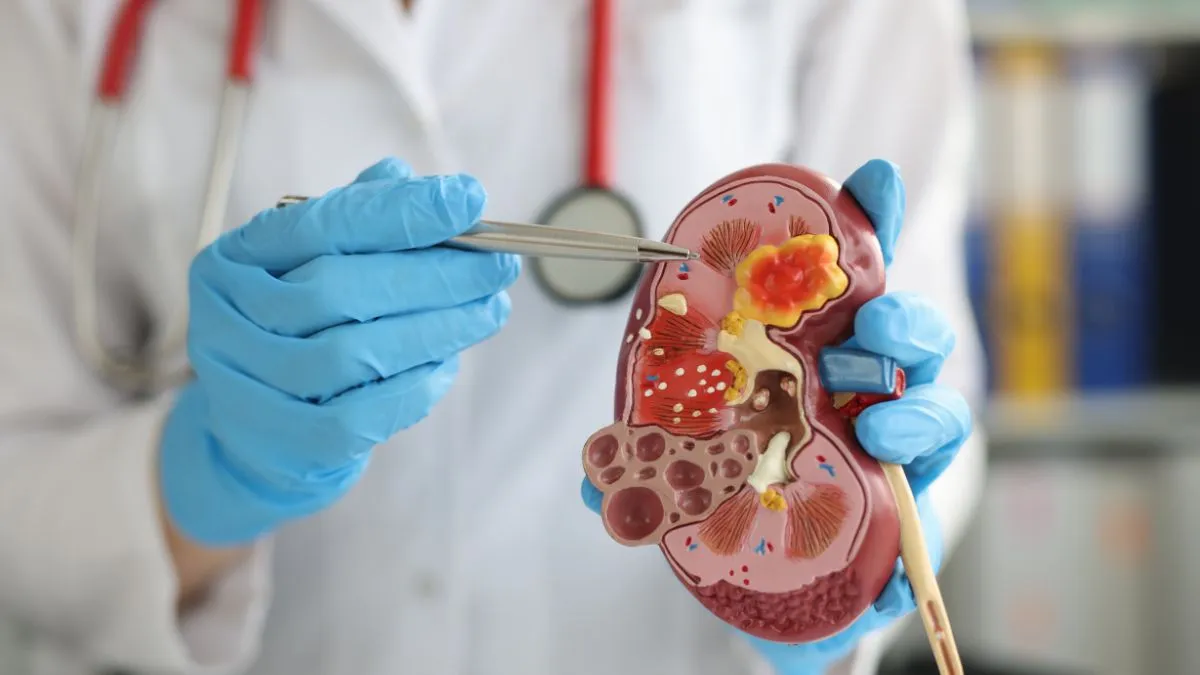- By Iram Hussain
- Sun, 12 Jan 2025 04:51 PM (IST)
- Source:JND
Obesity isn’t just a matter of appearance, it can also set off a chain reaction leading to serious health issues including kidney stones. If you’ve ever experienced the pain of delivering a kidney stone, you’ll know it is one of the most excruciating pain that humans can endure. Let us explore why obesity makes you more susceptible to kidney stones and share “easy-does-it” tips to keep both your weight and your kidney health in check.
In a conversation with Jagran English, Dr D R Dhawan, Consultant Urology, Manipal Hospital, Jaipur explained how obesity affects kidney stone formation and also listed some effective tips to maintain a healthy body weight.
The Connection: “Extra Pounds, Extra Problems”
Research consistently shows that individuals with a higher Body Mass Index (BMI) and extra belly fat face a higher risk of kidney stones. Why? Being overweight often causes insulin resistance (read diabetes) which can lower the pH of your urine, making it more acidic. When urine is too acidic, it creates a perfect environment for stone-forming compounds like oxalate and uric acid to bind together, forming painful “rocky deposits” inside the kidneys.
Additionally, studies have found that obese women might have an even higher risk of forming kidney stones than obese men, suggesting that hormones and different fat distributions play a role. Think of visceral fat (the “deep belly fat” wrapped around your organs) as the main troublemaker: It amplifies metabolic disturbances and raises blood pressure and cholesterol, all of which contribute to the production of kidney stones.
Indian Perspective: “Hot Climate, High Risk”
In many parts of India (esp. stone belts – Rajasthan, Punjab, Haryana, Gujarat, Parts of Western Uttar Pradesh), high temperatures combined with low water consumption create a double whammy for kidney stone development. People often underestimate their fluid needs, especially given the tropical weather and this chronic dehydration makes urine more concentrated—another win for “stone-building ingredients.” To make matters worse, diets heavy in salt, spice and processed foods can further increase your vulnerability to these pesky stones.
Tips To Maintain Healthy Body Weight
Balance Your Plate
Think of your plate as a canvas and fill it with colourful vegetables, fruits and whole grains. These nutrient-dense foods help in weight management and reduce your risk of forming kidney stones. A good thumb rule is to limit the intake of sodium, sugar and high-purine foods (like red meat) to keep “silent stone-builders” in check.
“Guzzle, Don’t Drizzle” Your Water
Aim for 2–3 litres of fluids per day. Remember, water is your best friend! But you can also add traditional beverages like lemon water, buttermilk or coconut water. Staying well-hydrated dilutes stone-forming minerals, preventing them from compounding in your kidneys.
Move To Groove
Exercise is like a magical “health reset” button. Walking, cycling or practising yoga can help you lose extra pounds and improve your metabolism, reducing your kidney stone risk in the process. Even 30 minutes a day can make a difference.
Portion Control = Power Control
Using smaller plates and focusing on mindful eating can help you avoid overeating. This not only tames weight gain but also helps keep your dietary habits balanced—a “two-in-one” bonus for weight management and kidney health.
Say “No” to Sugary Sodas
Sugary and carbonated drinks are “double trouble,” promoting both obesity and kidney stones. Replace them with infused water/detox water or unsweetened teas (if you don’t have a palate for plain water) to keep thirst away without adding extra inches to your waistline.
Monitor Your Calcium
Contrary to popular belief, moderate dietary calcium (from milk, curd, etc.) actually binds oxalates in your gut, stopping them from forming kidney stones. Avoid going overboard with calcium supplements though too much of a good thing can backfire.
ALSO READ: Doctor Recommended Simple Lifestyle Tips To Prevent Kidney Stones And Boost Health
ALSO READ: Doctor Explains Effects Of Obesity On Gut Microbiota And Digestive Health

